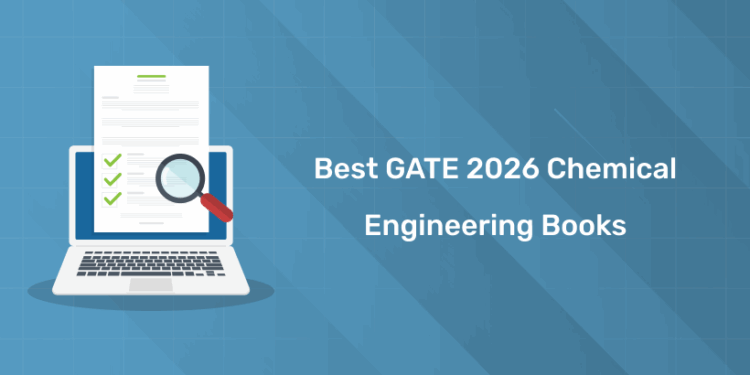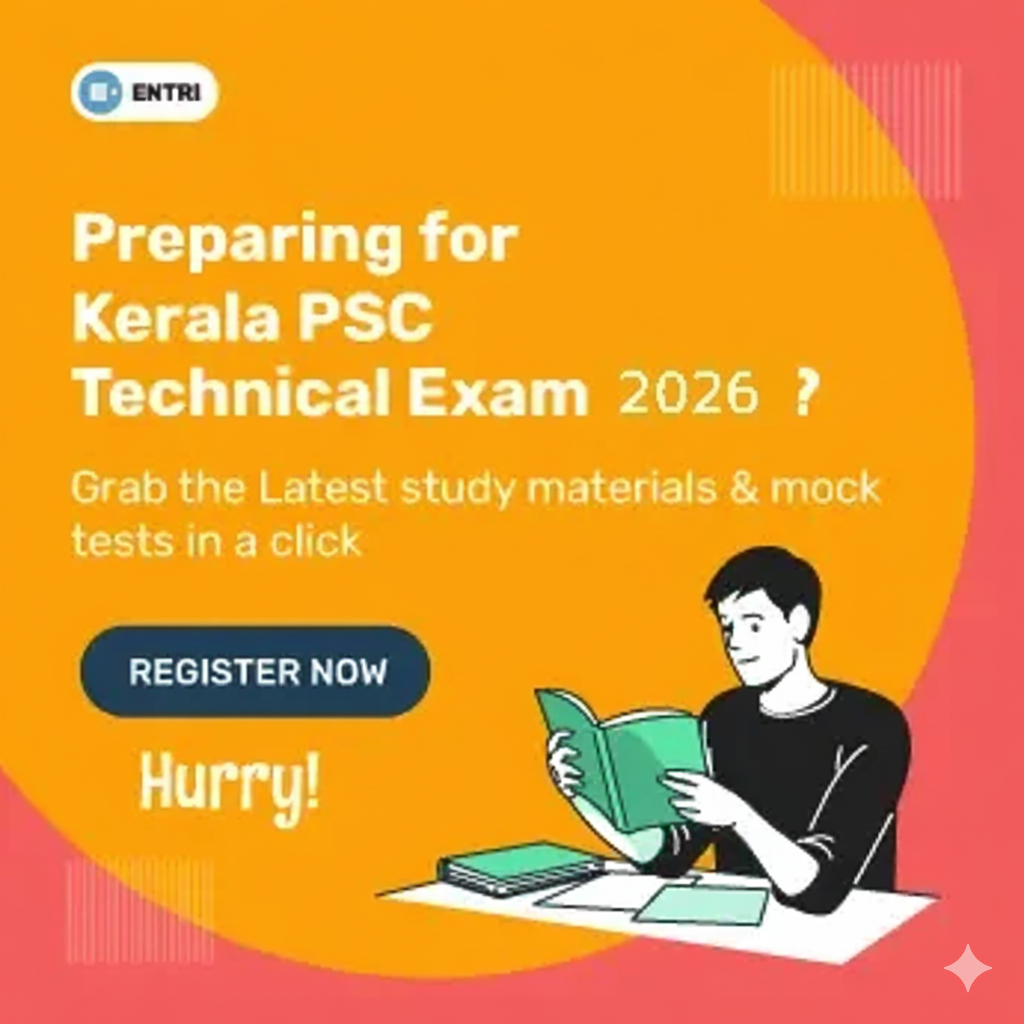Table of Contents
Starting your GATE 2026 CH prep but overwhelmed by too many book choices? Choosing the right books is crucial to cover the syllabus effectively and build strong concepts. In this blog, we’ve listed the Best Books for GATE 2026 Chemical Engineering, including subject-wise titles and authors. Scroll down to explore the complete list, along with key topics and authors.
GATE 2026 Notification Overview
| Particulars | Details |
|---|---|
| Exam Name | GATE 2026 (Graduate Aptitude Test in Engineering) |
| Conducting Institute | IIT Guwahati |
| Exam Level | National |
| Purpose | PG Admissions (M.E., M.Tech, Ph.D.), PSU Jobs |
| Total Papers | 30 (expected) |
| Mode of Application | Online |
| Registration Start Date | August 2025 (Tentative) |
| Last Date to Apply (No Late Fee) | September 2025 (Tentative) |
| Last Date to Apply (With Late Fee) | To Be Announced |
| Exam Dates | 1st & 2nd Weekends of February 2026 (Expected) |
| Admit Card Release | January 2026 |
| Mode of Exam | Computer-Based Test (CBT) |
| Exam Duration | 3 Hours (180 Minutes) |
| Total Questions | 65 |
| Question Type | MCQ, MSQ, NAT |
| Exam Frequency | Once a Year |
| Score Validity | 3 Years |
| Official Website | iitg.ac.in |
GATE 2026 Chemical Engineering Syllabus PDF
A clear understanding of the syllabus is where strong preparation begins. If you’re aiming to crack GATE 2026 Chemical Engineering, don’t skip this step. We’ve added the complete Chemical Engineering syllabus below—go through it to map out your topics, prioritize chapters, and align your booklist accordingly. It’s your first step toward a smarter prep strategy.
Best Books for GATE 2026 Chemical Engineering
Finding the right books can save you hours of confusion and boost your GATE 2026 CH prep. Below is a subject-wise table featuring trusted titles and authors that align well with the current syllabus. Whether you’re just starting or deep into revision, this list can guide you in choosing focused study material for every topic.
| Subject | Important Topics Covered | Book Name & Author(s) |
|---|---|---|
| Basic Principles & Calculations | Material balance, Energy balance, Recycle, Bypass operations, Combustion calculations | Basic Principles and Calculations in Chemical Engineering – David M. Himmelblau |
| Chemical Engineering (General) | Classifications of reactions, Isothermal/Non-isothermal reactors, Solid catalyzed reactions, Heterogeneous systems | Chemical Engineering for GATE – Ram Prasad |
| Chemical Process Control | Basic calculations, Material/Energy balances, Recycle/Burn operations | An Introduction to Theory and Practice – Stephanopoulos GProcess Dynamics and Control – Seborg et al. |
| Chemical Reaction Engineering | Ideal/non-ideal reactors, Heterogeneous reactions | Chemical Reaction Engineering – Fogler & GurmenChemical Reaction Engineering – Octave Levenspiel |
| Chemical Technology | Fertilizers, Petrochemicals, Pulp & Paper, Sugar, Polymers | Dryden’s Outlines of Chemical Technology – Gopala Rao M., Marshall S. |
| Engineering Mathematics | Eigenvalues, Matrix rank, Probability, Numerical solutions, Differential equations | Higher Engineering Mathematics – B.S. Grewal |
| Fluid Mechanics | Bernoulli’s Equation, Pipe flow, Fluid machinery, Particle characterization | Introduction to Fluid Mechanics – Cengel & CimbalaFox and McDonald |
| Heat Transfer | Conduction, Convection, Radiation, Heat exchangers, Boiling/Condensation | Heat Transfer – J.P. HolmanHeat Transfer – Binay K. Dutta |
| Mass Transfer | Interphase transfer, HTU/NTU, Equipment design | Mass Transfer Operations – Robert E. TreybalMass Transport Phenomena – Christie J. Geankoplis |
| Mechanical Operations | Size reduction, Filtration, Fluidization, Equipment design | Unit Operations of Chemical Engineering – McCabe et al.Mechanical Operations – Narayanan & Bhattacharyya |
| Plant Design & Economics | Cost estimation, Design principles, Process flow diagrams | Plant Design and Economics for Chemical Engineers – Peters & Timmerhaus |
| Process Dynamics & Control | Laplace transforms, System response, Feedback control, Tuning | Process Systems Analysis and Control – Donald R. Coughanowr & Steven E. LeBlanc |
| Thermodynamics | First/Second law, Entropy, Pure substances, Equilibrium, Thermodynamic cycles | Introduction to Chemical Engineering Thermodynamics – J.M. Smith et al.K.V. Narayanan |
| Transport Phenomena | Momentum, Heat & Mass transfer fundamentals | Transport Phenomena – R. Byron Bird, Warren E. Stewart, Edwin N. Lightfoot |
Once you’ve picked the right books, use them smartly. Start by matching each book to the topics in the syllabus. Focus on one subject at a time—read theory, solve end-of-chapter problems, and make short notes. Use books with solved examples for better concept clarity. After covering a topic, practice GATE-level questions. Don’t just read—revise regularly, mark tricky areas, and track progress to stay exam-ready. Good luck!










